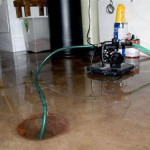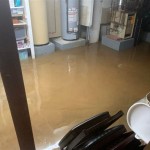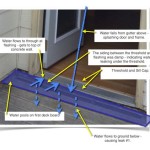How Do You Waterproof Your Basement
A basement is a great way to add extra space to your home, but it can also be a source of water damage if it's not properly waterproofed. Water can seep into your basement through cracks in the foundation, walls, or floor, and it can also come up from the ground through capillary action. If your basement is not waterproofed, it can lead to a number of problems, including mold, mildew, and rot. In severe cases, water damage can even cause your basement to collapse.
There are a number of different ways to waterproof your basement, and the best method will depend on the specific conditions of your home. However, some of the most common methods include:
- Interior waterproofing: This involves installing a waterproofing membrane on the inside of your basement walls and floor. The membrane will prevent water from seeping into your basement, and it will also help to direct any water that does get in towards a sump pump.
- Exterior waterproofing: This involves excavating the soil around your basement and applying a waterproofing coating to the outside of your foundation walls. The coating will prevent water from penetrating the walls, and it will also help to direct any water that does get in towards a drain.
- French drains: French drains are trenches that are filled with gravel and perforated pipe. They are installed around the perimeter of your basement, and they collect water that seeps into the ground. The water is then directed to a sump pump, which pumps it out of your basement.
- Sump pumps: Sump pumps are devices that are installed in the lowest part of your basement. They pump water out of your basement when the water level rises to a certain point.
In addition to these methods, there are a number of other things you can do to help prevent water damage in your basement. These include:
- Grading the soil around your home: Grading the soil around your home so that it slopes away from the foundation will help to prevent water from pooling around your home and seeping into your basement.
- Cleaning your gutters and downspouts: Clogged gutters and downspouts can cause water to overflow and pool around your home, which can lead to water damage in your basement.
- Installing a dehumidifier: A dehumidifier will help to remove moisture from the air in your basement, which can help to prevent mold and mildew from growing.
By following these tips, you can help to protect your basement from water damage and keep it dry and comfortable.

How To Waterproof Your Basement True Value

Diy Basement Waterproofing By Triad

How Does Interior Basement Waterproofing Work

The Complete Basement Waterproofing Guide For Homeowners

The 3 Major Approaches To Basement Waterproofing News And Events For Systems Inc

Diy Guide To Waterproof Your Basement Walls And Floors

Waterproofing Your Home Mid Construction Ohio Basement Authority

Best Way To Waterproof Your Basement Dry Pro

What Is Exterior Basement Waterproofing And Why Do You Need It Sedona Solutions

Average Basement Waterproofing Costs By Square Footage Layout And More Forbes Home







